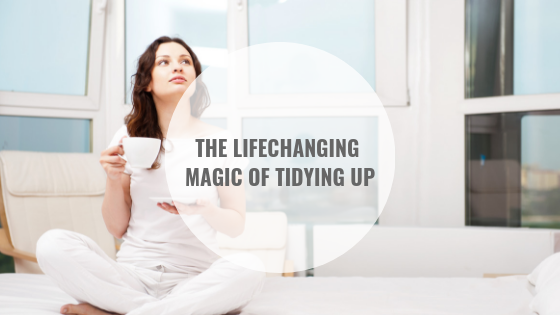Julie Entwistle, MBA, BHSc (OT), BSc (Health / Gerontology)
I was raised in a very tidy family. My grandfather had polio and thus my father was raised in a home where clutter was not an option, because if my grandfather tripped on something “lying around” he could be seriously hurt. My grandmother took it to some extremes (like waxing her garage floor), but the net result was a tidy dad that instilled the benefits of being organized on me.
I am very environmentally driven. I have a hard time being productive or functional if my space is uncomfortable. I keep my office, home and car reasonably organized. I know where the bills are that I need to pay, the ones that I have already paid, where my spare car keys are, and what I have in the fridge and freezer that could pass as dinner. I can usually answer the “mom, where is the ???” question and keep commonly used items in consistent places. I label things to make search and locate easier, and so that I can blame the kid responsible to avoid the “wasn’t me” response (when they were little they had one color each for bowls, plates and cups and they still have different colored towels). Having four teens and four pets, sure our house is in constant need of tidying, and getting my kids on the tidy train hasn’t always been easy. I try to give them some freedom over their bedroom, but once a week it needs to be “cleanable” and we have a special needs dog with an affinity for smelly socks (not clean ones), so at the least, they need to keep their dirty clothes safely stored in their “dog-can’t-reach” laundry bin.
I believe though that being organized is more than a skill, it is also a lifestyle. Like being active, or being a non-smoker, deciding to be organized is a conscious choice, then it requires commitment to get and stay there.
But like all “lifestyle choices”, this too can get derailed. As an occupational therapist “organization” often is incorporated into our treatment of clients, and this takes many forms. Sometimes it is organizing items into reachable places from a mobility device, or to conserve energy and reduce the pain caused from lifting the heavy pots from the bottom cupboard. Sometimes it is mail, email, and paperwork to ensure urgent items get addressed and bills continue to get paid. Maybe it is just putting like items together to make it easier and more efficient to find things (especially with cognitive impairment or depression that can make initiation, motivation, and memory impaired). If we are gearing up for a home renovation to address accessibility needs, sometimes purging, sorting and storing or discarding items is necessary to make room for the upcoming changes.
Marie Kondo (www.konmari.com) has become a Netflix, YouTube and internet sensation with her “Life Changing Art of Tidying Up” book and series. She coaches only keeping items that “bring joy” and offers some suggestions on how to sort, fold and emotionally process keeping things we love, and letting go of the things we don’t. While I am not sure filing a utility bill, organizing my doggie poop bags, or emptying the overflowing bathroom garbage are things and items that “bring me joy”, I love her approach to folding and agree that your home should be filled with items that reduce, not increase, your level of stress. In the end, being organized is efficient because when you can find things you are not spending that emotional, cognitive and physical energy “looking around aimlessly” all the while getting frustrated, or worse, tired and angry. The time you save by being able to navigate and find the things in your own home quickly can be spent on other meaningful, purposeful and joyful activities. And that is where I agree with Marie that organizing can help us to “choose joy”.

